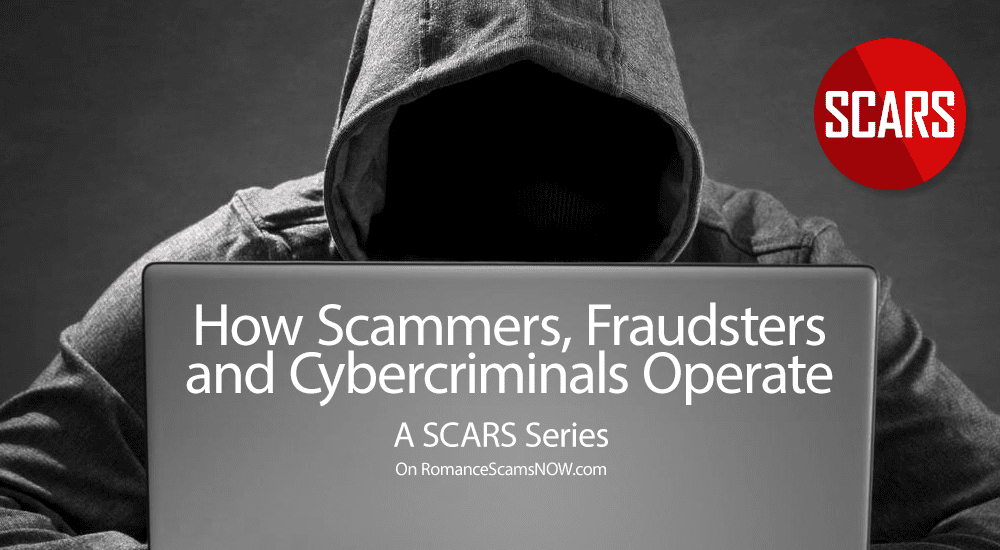Social Delivery Is A Scammer Grooming Technique
In the realm of online romance fraud or relationship scams, scammers employ a calculated technique known as “social delivery” to establish rapport and cultivate trust with their unsuspecting victims.
Social Delivery
Through this deceptive method, fraudsters go beyond mere virtual interactions and take their manipulation to a tangible level by sending packages filled with various enticing items. These packages often include charming tokens of their affection and commitment such as: teddy bears, watches, air pods, and even unexpected treats like pizza, drinks, and vibrant bouquets of flowers.
The term “social delivery” aptly captures this specific step in the progression of their grooming process, where the physical act of sending these gifts becomes a crucial tool for their fraudulent agenda.
Once the package is dispatched, the fraudsters cunningly request that the recipients take a photograph of themselves, in the presence of the delivered package, as a means to ensure its arrival. This seemingly innocent request plays a pivotal role in advancing the scam. By engaging the victims in this way, the scammers cleverly exploit their victim’s emotions, leveraging the excitement and gratitude elicited by the unexpected gift.
This visual confirmation serves a dual purpose for the criminals. On one hand, it provides them with tangible proof that their social delivery tactic has been successful, reinforcing their ability to deceive and manipulate their victims. On the other hand, it compels the victims to actively participate in the fake relationship, inadvertently deepening their engagement and susceptibility to further exploitation.
Within the intricate web of online forums and communication platforms where fraudsters gather, the concept of social delivery takes on a new dimension.
It becomes a shared language, a term familiar among these criminals who proudly display their ill-gotten achievements. On these virtual spaces, the fraudsters proudly showcase the images and stories of the packages they have sent, and more significantly, the victims captured in photographs alongside their delivered gifts. These uploads serve not only as a means of personal gratification for this class of fraudsters but also as a form of communication and validation within their nefarious community. It is a chilling display of their manipulative skills, a method to exchange tips, tactics, and celebrate their exploitative successes.
Why Engage In Social Delivery?
Scammers may sometimes send gifts and presents to their victims as a tactic to further manipulate and exploit them.
Here are a few reasons why scammers engage in such behavior:
- Establishing trust: By sending gifts, scammers aim to create a sense of trust and goodwill with their victims. The act of receiving a gift can evoke positive emotions and make victims more inclined to believe the scammer’s intentions are genuine.
- Reciprocity: Scammers exploit the principle of reciprocity, which is a social norm where people feel obliged to reciprocate when someone does something nice for them. By sending a gift, scammers hope that victims will feel obligated to reciprocate in some way, such as by providing personal information or sending money.
- Psychological manipulation: Scammers understand that emotions play a crucial role in their success. Sending gifts can trigger feelings of gratitude, guilt, or indebtedness in victims, making them more vulnerable to the scammer’s subsequent requests or demands. Scammers often employ various psychological manipulation tactics to exploit their victims. Sending gifts is part of a broader strategy that includes creating a false sense of urgency, exploiting vulnerabilities, and manipulating emotions such as fear, greed, or desperation. The goal is to cloud victims’ judgment and make them more susceptible to falling for the scam.
- Building a relationship: Scammers often adopt personas and pretend to be someone trustworthy or romantically interested. Sending gifts can be a part of the scammer’s strategy to build a deeper emotional connection with the victim, leading to a more prolonged and successful scam.
- Legitimacy and credibility: Some scammers may send counterfeit items or fake checks as gifts to create an illusion of legitimacy. By presenting themselves as generous and reliable, they attempt to establish credibility and convince victims that their subsequent requests or investment opportunities are legitimate. Scammers understand that trust is a crucial factor in successful scams. By sending gifts, they aim to reinforce the perception that they are legitimate and trustworthy. Victims may interpret the gifts as evidence that the scammer is genuinely invested in their well-being, further solidifying the false trust.
- Overcoming skepticism: Scammers are aware that people can be skeptical when approached with fraudulent schemes. By sending gifts, they aim to disarm victims’ initial skepticism and make them more receptive to their subsequent requests. Victims may lower their guard, assuming that if the scammer is sending gifts, they must have good intentions.
- Encouraging continued engagement: Sending gifts can be a way for scammers to keep victims engaged in the scam. By receiving a gift, victims may feel more invested in the relationship or the promised benefits associated with the scam. Scammers exploit this emotional investment to prolong the interaction, increasing the likelihood of further monetary or personal information exploitation.
- Psychological impact: Receiving unexpected gifts can have a psychological impact on individuals. It can create a sense of surprise, excitement, and curiosity, which scammers leverage to maintain control over their victims. Victims may become curious about the motives behind the gifts or feel compelled to continue interacting with the scammer out of curiosity or a desire for more gifts.
In effect, the act of receiving gifts is another form of an Amygdala Hijack to produce additional hormones and neurotransmitters in the brain.
Gallery of Social Delivery
How Do Scammers Pay For Social Delivery?
Scammers have various methods for paying for the items they purchase as part of the “social delivery” technique.
You may remember that scammers involved in Romance Scams often have a “child” and ask that you buy a gift for them? Many many victims do just that, and this is where those gifts often go – to other victims!
Here are a few other common ways that criminals pay for these gifts:
- Stolen credit cards: Scammers often obtain stolen credit card information through illegal means. They may purchase items using these stolen credit cards, allowing them to pay for the gifts without their own funds being involved. This allows them to maintain anonymity and distance themselves from any financial transactions associated with the scam.
- Compromised accounts: Scammers may gain unauthorized access to legitimate accounts, such as online shopping accounts or payment platforms. By using these compromised accounts, they can make purchases without leaving a direct trace back to themselves. This method can involve using stolen login credentials or employing techniques like phishing to trick victims into revealing their account information. Or they can easily be purchased on the dark web.
- Money mules: Scammers may enlist the help of unwitting individuals known as money mules. These individuals are often recruited under false pretenses or are actual scam victims themselves, believing they are participating in legitimate business transactions. The scammers use the money mules’ bank accounts to receive funds from their fraudulent activities, including purchasing items for social delivery. The money mules are then instructed to transfer the funds to the scammers or make purchases on their behalf.
- Fake or fraudulent payment methods: Scammers may create fake payment methods or use fraudulent techniques to deceive sellers. For example, they may provide counterfeit checks, fabricated payment confirmation emails, or use stolen or fake financial account information. By tricking sellers into believing they have received payment, scammers can acquire the items for social delivery without actually paying for them.
- Money laundering: In some cases, scammers may use money laundering techniques to facilitate the payment for the items. They may utilize complex networks of transactions and transfers to obscure the origin of the funds and make it difficult to trace the money back to its illicit source. This method allows scammers to disguise their activities and use the proceeds of their scams to purchase gifts for social delivery.
It is important to note that all these methods involve illegal activities, and criminals are constantly evolving their tactics to stay one step ahead. To combat such fraudulent activities, it is essential for individuals and businesses to remain vigilant, exercise caution when conducting online transactions, and report any suspicious or fraudulent behavior to the appropriate authorities.
Victim Warning
In almost all cases, the items received by a victim are actually stolen property.
It is important to make sure that you itemize anything they receive when making a police report or they could be subject to a criminal charge of receiving stolen property by the original owner. This is especially true if the items were purchased using stolen credit cards – the merchant will have only the victim to go after.
Be Aware
In light of these devious practices, it is crucial for individuals to remain vigilant and cautious when engaging in online relationships, especially when confronted with unexpected gifts from virtual acquaintances. Awareness of the social delivery tactic empowers potential victims to recognize the calculated manipulation behind these gestures. It serves as a reminder that sincerity and trust should not be solely based on material tokens but rather on genuine connections built over time, in which personal interactions and consistent behavior play a crucial role. By staying informed and cautious, individuals can safeguard themselves against falling victim to the intricate traps set by online romance fraudsters utilizing the tactic of social delivery.
-/ 30 /-
What do you think about this?
Please share your thoughts in a comment below!
Do You Need Support?
Get It Now!
SCARS provides the leading Support & Recovery program for relationship scam victims – completely FREE!
Our managed peer support groups allow victims to talk to other survivors and recover in the most experienced environment possible, for as long as they need. Recovery takes as long as it takes – we put no limits on our support!
SCARS is the most trusted support & education provider in the world. Our team is certified in trauma-informed care, grief counseling, and so much more!
To apply to join our groups visit support.AgainstScams.org
We also offer separate support groups for family & friends too.
Become a
SCARS STAR™ Member
SCARS offers memberships in our STAR program, which includes many benefits for a very low annual membership fee!
SCARS STAR Membership benefits include:
- FREE Counseling or Therapy Benefit from our partner BetterHelp.com
- Exclusive members-only content & publications
- Discounts on SCARS Self-Help Books Save
- And more!
To learn more about the SCARS STAR Membership visit membership.AgainstScams.org
To become a SCARS STAR Member right now visit join.AgainstScams.org
To Learn More Also Look At Our Article Catalogs
Scam & Crime Types
More SCARS
- ScamsNOW Magazine – ScamsNOW.com
- ContraEstafas.org
- ScammerPhotos.com
- AnyScam.com – reporting
- AgainstScams.org – SCARS Corporate Website
- SCARS YouTube Video Channel
















Leave A Comment